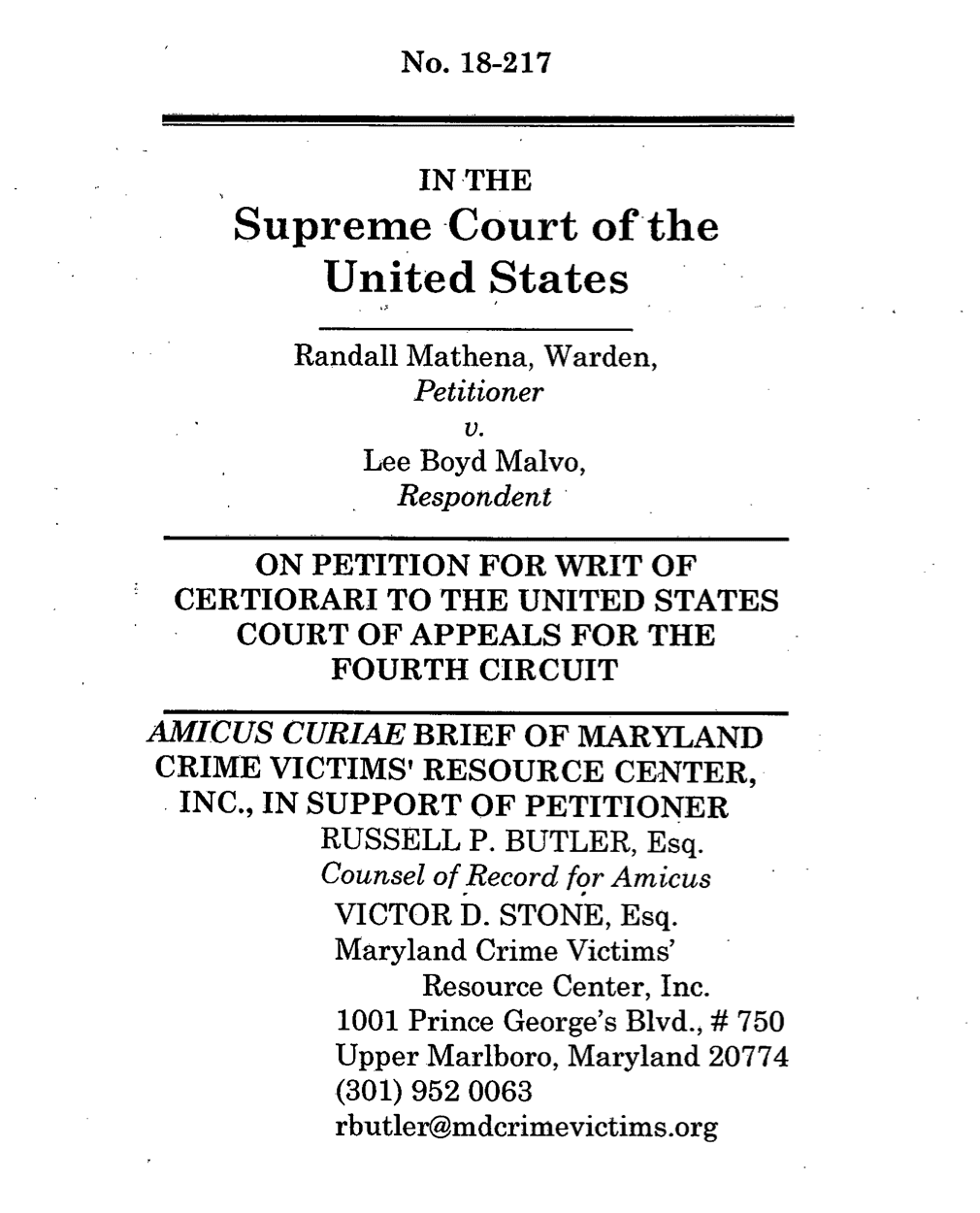
Summary of Argument
Amicus raises the interests of not only Malvo's Virginia homicide victims' families or representatives, but also the interests of victims from across the nation, as a reason to take up and decide the petition.
On its face, the holding of the court below improperly focused upon the jury. However, requiring specific findings whether by juries (as in Respondent's Chesapeake City, Virginia cases), by judges even if there is a plea bargain approving the life sentence (as in Respondent's Spotsylvania County, Virginia cases), was not part of this Court's holding in Miller and Montgomery.
There are good reasons why this Court did not require particularly worded sentencing findings:
First, this Court's holdings were directed to and held invalid the inflexible situation where a legislative mandate had blindly required imposition of a life sentence at the front end of a life without parole sentence and allowed no parole or other release procedure by executive branch officials at the back end of that life sentence.
Second, requiring particularly worded findings would be contrary to the requirements of federalism since each state has different sentencing and release laws.
Third, particularized findings would be impossible to implement retroactively because virtually no judicial determination prior to this Court's rulings would have been prescient and used the precise "magic words" subsequently announced in Miller and Montgomery. The consequences of such a requirement at sentencing, as determined by the court below, means that all juvenile murders and were sentenced to life in Virginia would, per Se, need to be resentenced.
Fourth, focusing on the jury at sentencing - overlooks this Court's holding: i.e., that a discretionary release need not occur at the time of sentencing, but can occur later by other criminal justice system officials at the routine time that release is considered. In this respect, the holding below contravenes this Court's summary reversal in Virginia v. LeBlanc, 137 S.Ct. 1726,1729 (2017). In that case, the Virginia scheme of geriatric release was not found to be objectively unreasonable and it satisfied this Court's Eighth Amendment Montgomery standard. For that reason, the court below was required to follow the law and uphold Respondent's state sentences. Respondent is not entitled to review under special broader Eighth Amendment standards.
Most importantly to Amicus, the decision below retroactively revising the judicial sentencing process overlooks that the new sentencing process imposed below inflicts serious harm upon, and unlawfully revictimizes and disrespects victims here, as to whom the court below improperly gave no consideration whatsoever. Victims in federal collateral attack proceedings may no longer be ignored. Congress has required "fairness" to victims in federal habeas actions like this one challenging state convictions and sentences. 18 U.S.C.3771(a)(8),(b)(2). The interests of victims during the criminal justice process was explicitly recognized by Congress. This Court in Calderon v. Thompson, 523 U.S. 538,556(1998) articulated the harm that befalls victims and must now be considered. Here the actions of the court below violated the victims' rights under the Fifth Amendment since their rights and interests to finality, fairness, and dignity were paid no heed whatsoever. Extending Montgomery's holding beyond the holding itself implicates the respective "weighty" interests in finality. In fairness to the victims, both in the Fourth Circuit and nationwide, this Court should grant the petition for review and reverse the decision below.